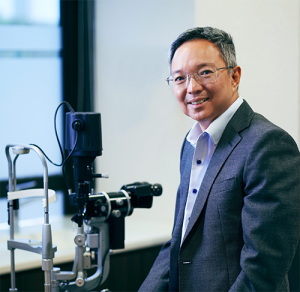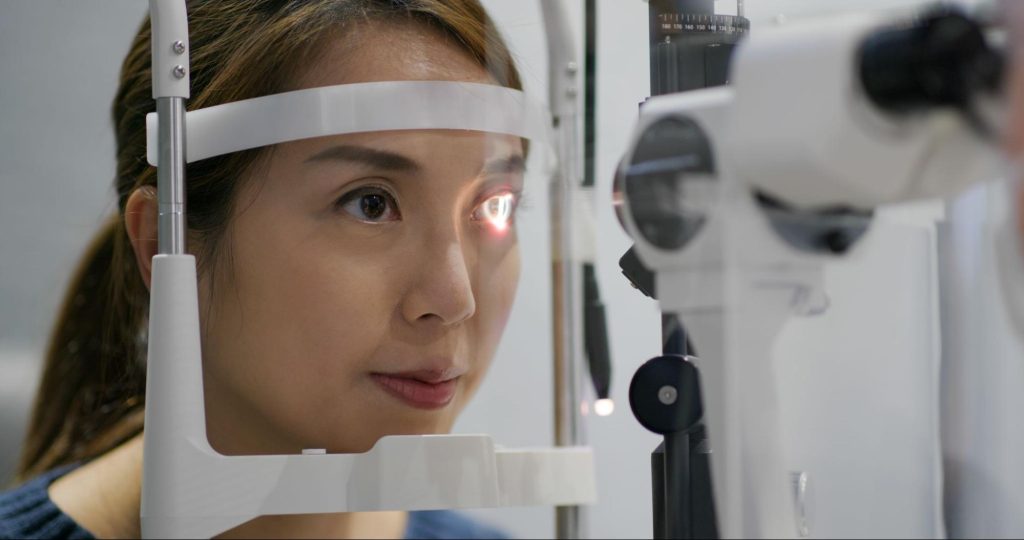Diabetes mellitus is a group of diseases that affects how the body makes use of the sugar (glucose) in the body. When there is too much sugar in the blood this can lead to serious health problems such as diabetic eye diseases.
High glucose in the body can change the fluid levels or result in the swelling of your eyes’ tissues. This will affect the way your eyes focus, causing blurred vision. However this can go away if you properly manage your glucose levels.
If you’ve neglected to keep your glucose levels normal, this can damage the blood vessels in the back of your eyes. As a result, the damaged blood vessels can leak fluid and result in swelling, which may also affect new and weak blood vessels. This will lead to scarring or dangerously high pressure in your eyes, which ultimately turns into permanent vision loss or blindness.
To avoid these severe health consequences, it is good to go to an eye clinic for a regular diabetic eye screening in Singapore. This can help you determine if you are at risk of any diabetic eye diseases such as diabetic retinopathy.
What Is Diabetic Eye Screening?
Undergoing diabetic eye screening helps you detect problems before they begin to affect your vision. Screening is essential because many diabetic eye disease does not present any symptoms during their early stages when they can be treated.
If you have been diagnosed with diabetes, you should visit your eye doctor for a checkup at least once a year or as frequently as your doctor recommends.
Managing your diabetes and visiting your local eye clinic in Singapore for regular tests can prevent problems with vision and inhibit conditions like diabetic retinopathy from worsening.
What to do Before Your Diabetic Eye Screening
Before going to your diabetic eye screening appointment, we advise you not to drive as your sight may be blurry afterwards. If possible, ask someone to accompany you to the exam in case you need any assistance after the check up. Additionally, you can also bring sunglasses with you as you might have increased light sensitivity for a few hours after the test.
What Happens During a Diabetic Eye Checkup?
- You will be asked to perform a visual acuity test where you will read some letters on a chart. This is to determine how well your eyes can still discern the shapes and details of the things that you see.
- After the visual acuity test, your eyes will then be checked using the Optos Ultra Wide Field Retinal Scanner. Unlike other retinal scanners, the Optos Ultra Wide Field Retinal Scanner does not require dilating drops, and you won’t have to endure blurred vision throughout the session. You can look into the device directly and wait for the flash of light to occur, indicating that the retinal image capturing is done.
- The eye specialist will then evaluate the image of your retina to fully determine the condition of your eyes and your diagnosis.
The diabetic eye screening typically takes about 30 minutes. Any side effects lingering after the test should clear up by the end of the day.
Book a Diabetic Eye Screening Today for Early Treatment
Early detection of diabetic eye diseases, especially diabetic retinopathy, is essential in maintaining your vision. Diabetic retinopathy is the leading cause of vision loss among individuals that have diabetes. Other eye diseases that could come up when you have diabetes include cataracts and glaucoma.
If you are not up to date on your vision screening and/or improperly manage your sugar levels, this can lead to the advanced stage of the condition known as proliferative diabetic retinopathy. By then, the symptoms are more severe and could result in irreversible vision loss or retinal detachment.
EyeWise Vision Clinic is a trusted eye clinic in Singapore that provides a range of eye health services, including diabetic eye screening tests. Our eye specialist will assess your condition and offer comprehensive consultation to ensure diabetes management that will prevent the effects of chronic disease on your eyes. If the condition has reached the advanced stage, our eye doctor is also able to perform treatment with our pattern scanning laser, which can be completed in less time with little to no pain compared to other laser treatments. Book an appointment with us today to learn more.

Dr. Christopher Khng, specializes in Complex Cataract and Anterior Segment Reconstruction Surgery, in particular, Iris Reconstruction and surgery for Aniridia. His other areas of expertise include Complex Lens surgery, New Lens and Phacoemulsification technologies, Refractive surgery, Phakic IOLs (the Implantable Collamer Lens, ICL), and small-incision, topical anesthesia phacoemulsification cataract surgery. Dr. Khng is a member of the Singapore Medical Association (SMA), a Fellow of the American Academy of Ophthalmology, the American Society of Cataract and Refractive Surgery (ASCRS), and the European Society of Cataract and Refractive Surgery (ECSRS). He is registered with the Singapore Medical Council (SMC) in Singapore and with the General Medical Council (GMC) for practice in the United Kingdom.

